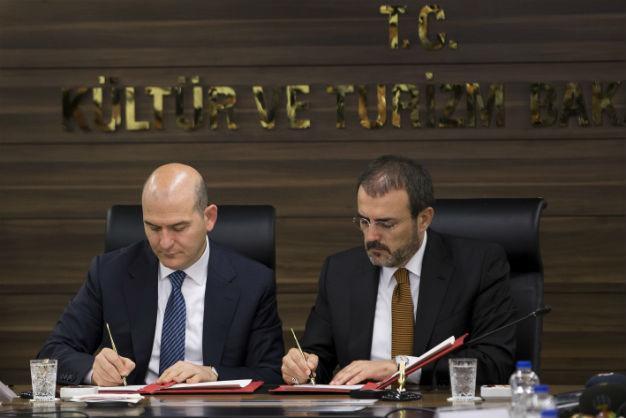Turkey unveils 'support package' for Antalya, Muğla to boost embattled tourism sector
ANKARA

AA photo
Turkish Tourism Minister Mahir Ünal and Labor and Social Security Minister Süleyman Soylu have revealed an employment support package to back the hard-hit tourism sector, according to Reuters.
The five-item package will be in force for the Mediterranean resort of Antalya and the Aegean province of Muğla for the next year in the initial stage but could be extended if necessary, the ministers said April 12.
This package aims to support employment and training in the sector and to offer incentives for all tourism workers, from foreign employees to newcomers, said officials.
Soylu said the package was mainly developed to support around 45,000 people who have opportunities for work in nine months of the year but have no job prospects in the remaining three months of the year.
Noting that around 95 percent of the people in question were in Antalya and Muğla, Soylu said: “The social security premiums of these 44,753 people will be covered by the Turkish Employment Organization (İŞKUR) for the three-month period in which they are not employed. The cost is estimated at around 260 million Turkish Liras [$92 million].”
Soylu said the people would be trained by İŞKUR during the three-month period in line with the needs of the sector.
Rise in early reservations by local tourists
Ünal said the number of early reservations by domestic tourists had increased over the year, noting that some 4 million early reservations had been made so far by local tourists – an increase of 25 percent compared to last year.
The number of foreign visitors coming to Turkey tumbled 10 percent in February, the biggest drop in a decade, data released by the Tourism Ministry showed on March 29. Turkey has been hit by a spate of bomb attacks this year, including two targeting tourists that were blamed on the Islamic State of Iraq and the Levant (ISIL) in Istanbul, the country’s largest city and a traditional tourist draw. The number of reservation cancelations from the German market has been around 40 percent, according to tourism representatives.
The number of arrivals from Russia has also declined by over the half in the first months of the year, compared to the same period of 2015, particularly since Turkey shot down a Russian jet last year, triggering a furious Russian response.
In order to support the sector during the current troubles, the government announced a number of detailed packages. A package announced by Prime Minister Ahmet Davutoğlu on Feb. 22 includes a 255 million-lira grant and several mechanisms which will enable tourism firms to restructure their debts. A $6,000 fuel subsidy for each airplane carrying tourists to certain airports in Turkey has also been extended from June until September.
